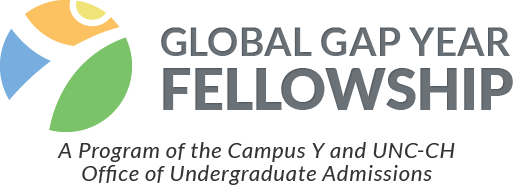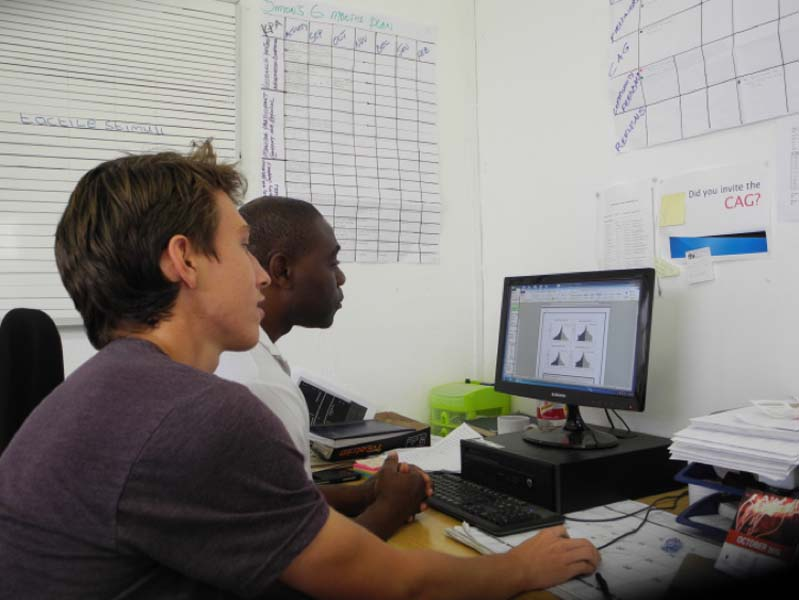
The following post was written by Klaus Mayr.
I realize I’ve not really written anything about the actual work I’m doing here in South Africa. Before I came to the Wits Rural Facility, I didn’t realize just how much I would love and grow from this volunteer placement. I know that not all of it will sound excessively intriguing to many people who read this, but I’ve come to find it quite intriguing, impactful, rewarding, and even thrilling sometimes.
I’m working for Dr. Wayne Twine, an associate professor from the University of the Witwatersrand and the manager of the SUNRAE (Sustaining Natural Resources in African Ecosystems) Program at the Wits Rural Facility, right down the road from Kruger National Park, one of the most remarkable places I’ve ever been to.
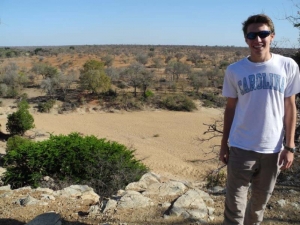
The SUNRAE Program seeks to understand the relationship between humans and their environment in the lowveld, Bushbuckridge region of South Africa. Wayne is the resident researcher here at the Wits Rural Facility, so he’s got his hand in a few different research projects going on at any one time. He has six PhD students, and many colleagues both from the University of the Witwatersrand and from outside of the country, all doing their own thing and constantly consulting Wayne.
The Wits Rural Facility is special; there is honestly no other place on earth like it. A game reserve, a few kilometers down the road from one of Africa’s greatest national parks, that attracts researchers and students from all over, for so many diverse and fascinating reasons: from researching lion bone trade and termites, to the eradication of HIV and the study of mental cognition.
I have dabbled in the termite and HIV eradication studies, but my roles were miniscule. While I’d love to be a part of everything going on here, my heart happily belongs to SUNRAE.
My job description is sort of all over the place, I pretty much do whatever is needed of me, which involves a great deal of data collection, data entry, and data analysis. I spend several days each month in the bush with two Environmental Monitors employed by the South African Department of Environmental Affairs collecting information about fuelwood harvesting and regrowth. While it may sound mundane, it is vital to the future of communities like this one, because many families here still use fuelwood as their primary form of energy. With rapidly growing populations and a changing climate, there is a growing concern for future fuelwood/energy scarcity, and SUNRAE is leading the push to prevent this from occurring, and securing the livelihoods of the people in rural South Africa.
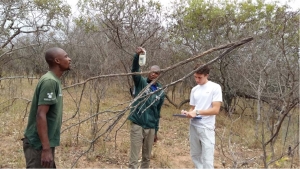
This aspect of my job has given me a glimpse into the world of academia, and how it can be directly used to impact the world. Hopefully one of my upcoming blogs will elaborate on just why I enjoy it so much.
One of the other tasks that I’ve taken a special liking to is map making. Thanks to my GGYF predecessor here (shout-out to Thomas), I’ve been using a mapping software called ArcGIS to add to his map of the reserve and create new maps for one of Wayne’s PhD students, Norman. Throughout high school, I worked at the Map Shop in Charlotte, so I sort of have a thing for maps, which has made this quite enjoyable. I’ve spent many hours staring at the computer putting these maps together, which has given me ample time to listen to Trevor Noah’s new book, Born a Crime, which I highly recommend. I also now know my way around the Wits Rural property better than most people here, so no more misadventures on my evening runs…
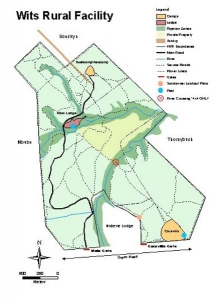
I’ve also been putting my high school newspaper skills to use editing Norman’s PhD thesis. Because he’s a native Shangaan (the local dialect) speaker and English is not his first language is not so easy to navigate academic language at the PhD level, and I love to edit, so it seems this partnership was truly meant to be. He is writing on the effectiveness of a natural resource management system that is being implemented in a few villages in the area.
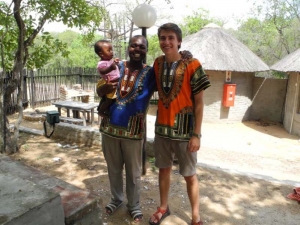
In addition to living at the Wits Rural Facility, I also spent a week living with a family in a village near the Agincourt Public Health Research Unit. During that time, and a few other days that I’ve stopped in, I worked with Simon (pictured below), who manages the center’s stakeholder engagement with the tribal leaders in Agincourt’s study area. I trained him to develop community demographic fact sheets that are distributed all over the study area, which provide information about population trends seen in each individual village.
Like most young people these days, I’ve been learning to use Excel and Word since I was quite young. Simon, however, grew up as a black man being taught in Apartheid South Africa, under the Bantu education system, which taught black people to be nothing more than cheap, uneducated labor for white South Africans. So creating these fact sheets has been no easy task for him. But he is so eager and capable to learn these new skills, and his knowledge of the structure of local village governments is astounding. Because of my interest in government, especially on a local, rural scale, he has taught me just as much, if not more, than I’ve taught him.
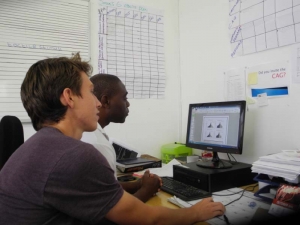
As I said, my role here is difficult to define. These are the projects I’ve spent most of my time on here, but as an intern, I’ll do anything.
Each day, I feel more comfortable and knowledgeable about the work that I’m doing here. I’ve learned that public service can be much more than the work that typically defines volunteerism. It’s a lesson that the Wits Rural Facility teaches quite quickly. As part of one of South Africa’s premier universities, sitting amidst high-class game reserves and impoverished villages, working directly with both, this place is a window into the problems and solutions facing the people and environment of rural South Africa.
There is an abiding sense of respect that exists between the people on this reserve, across the street, and throughout the Bushbuckridge region. Everyone seems to understand that the goals and ambitions of humankind are not so disparate, but the cultures within it are. We are all working to improve the well-being of the various communities that exist here, all adding our own little touch to the betterment of each other’s lives. I’m so proud to be a part of it all, and so grateful to everyone who has allowed me to be.
